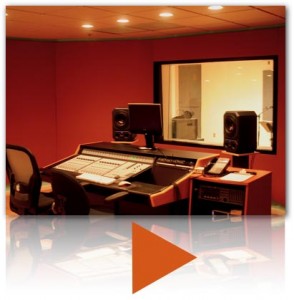Anyone with an Internet connection and audio equipment can produce a podcast. Right? But for the company or agency that wants a phenomenal podcast, CMS professionals are the way to go.
A scriptwriter explains the corporate message in a clear, concise, engaging manner. And creates sticky material that holds the attention of the listener. Actors and narrators deliver the message and command attention.
Critical to the professionally-produced product is a sound studio to record the message. These studios are capable of recording broadcast quality, and because podcasting does not fall under any government regulations, podcasts may also be uploaded to the web using a podcast host.
“New Service Request Podcast“
Is an example of a podcast produced by CMS for U.S. Department of Veterans Affairs – it explains in a fun and engaging manner a new administrative tool.
Digital media podcasts consist of episodes of audio or video files. The file is uploaded to a server and an individual can subscribe to a set of feeds or download the files. They may be downloaded or streamed on demand. As a result of the faster Internet broadband connections podcasts are more easily downloaded for listening and viewing on Web TV, iPads and iPhones. Enhanced podcasts display images with audio. An audio podcast as an audio file, usually MP3, MP4 or AAC that downloads through an RSS feed.
Today, colleges employ podcasts—often for viewing or listening on iPods—as teaching devices for their instructional media. Teachers and instructional designers are distributing course content for students to access from anywhere at any time. Audio podcasts are relatively inexpensive to produce compared to video or vodcasting. Students are provided with audio pods, often the same day as a lecture, for use in homework or as a review tool for an exam.
